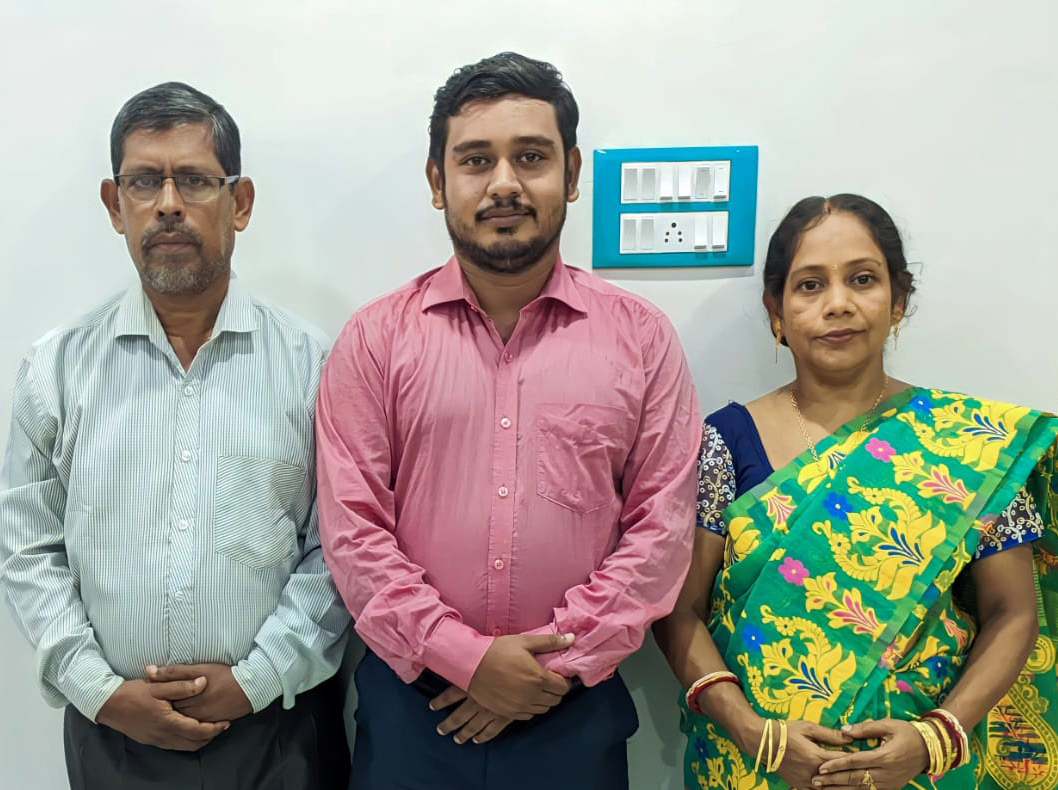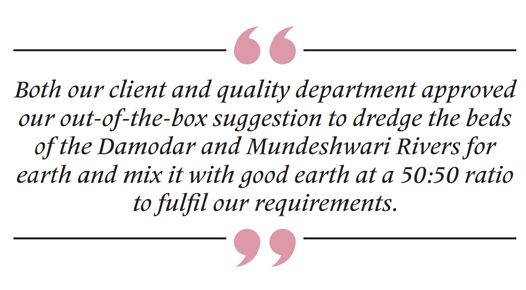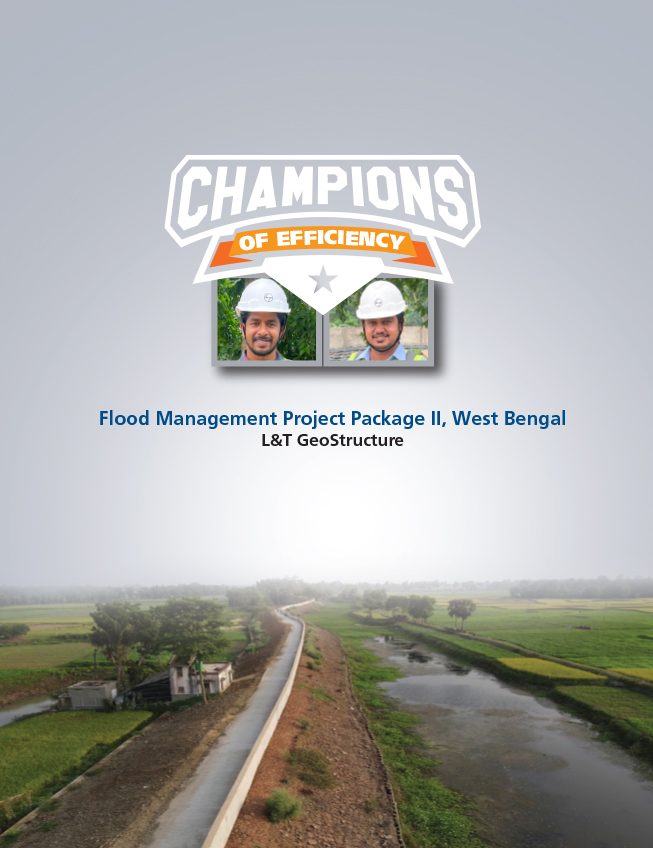
LEARNING THE ROPES, THE HARD WAY
Dibakar Podder
Assistant Manager (Civil), L&T GeoStructure
Though with L&T GeoStructure only since February 2022, Dibakar Podder has already faced a variety of unique challenges that they, as a team, have successfully overcome at the Flood Protection Works — Package 2 Project. “You only know the value of a team when it executes a project in time with perfect efficiency,” he observes, in praise of his team that has won the ‘Quality Appreciation Certificate’ from the Irrigation Waterways Directorate, Government of West Bengal, and a special mention from the Corporate Office for quality.
The team’s early challenges were lack of proper motorable access to their site and only about 54% of land to begin construction activities. Next, the embankment had to pass through several villages and, although the Government had remunerated the locals to relocate, many were unhappy. “At times, the situation was serious, but we had to keep calm in such situations, console them and focus on our target,” Dibakar says grimly.
With no soil available from the neighbouring cultivated lands to strengthen the embankment as per the design drawing and the idea of transporting it 8 km from another location on tractors proved too expensive, the team decided to dredge the riverbeds of the Damodar and Mundeshwari Rivers instead, coordinating with the Gram Panchayat to lift soil from the existing canal to successfully complete the task. Construction equipment like excavators, tractors, and other machines could not access the site as the existing embankment bund was only 2.4 m wide. “While widening the embankment was not possible, we opted to reduce the height of the embankment to 1 metre to both gain access and speed up activities,” says Dibakar with a wide smile.
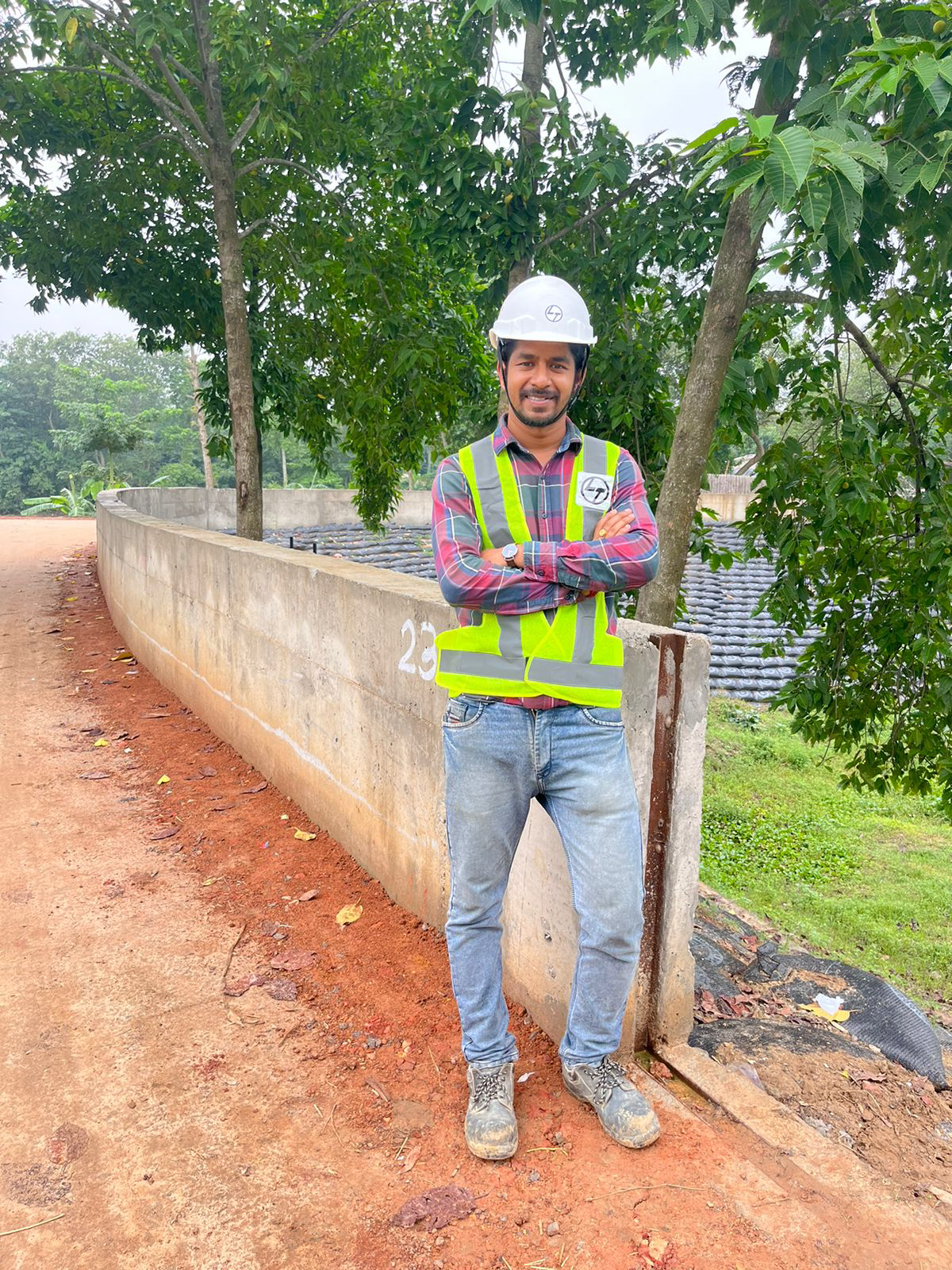

The team came to the rescue of the neighbouring villages from flooding when the Damodar and Mundeshwari Rivers were in spate by deploying 1,100+ workers to safeguard the bunds by placing filled polybags at the breaching locations and, thereafter, effectively maintained pre- and post-flood measures. Their efforts won them a certificate of appreciation from the client.
“My immediate senior, Surendra Bharti Sir, guided me as this is my first project and helped me to learn the L&T culture,” he remarks gratefully, mentioning Project Manager V B Thakre too for his constant support.

From Kolkata, West Bengal, Dibakar is married to Sebanti Banerjee Podder, and their small family is complete with their daughter, Sribriddhi, and pet dog, Mango. He is most happy aquascapping when free, a subject obviously close to his heart.
OUT-OF-THE-BOX THINKING,
SMART SOLUTIONS
Krishnendu Santra
Assistant Foreman (Marine), L&T GeoStructure
Moving earth is no easy matter, and Krishnendu Santra at his Flood Protection Works (FPW) – Kolkata, Package-II for L&T GeoStructure will readily agree. One of the biggest challenges before Krishnendu and team was to find about 120,000 cum. of earth to strengthen the embankment as per the design drawing. With no one willing to offer earth from their highly valued agricultural land, the team approached the Gram Panchayat members about taking earth from the canal beds. “Consecutively, both our client and quality department approved our out-of-the-box suggestion to dredge the beds of the Damodar and Mundeshwari Rivers for earth and mix it with good earth at a 50:50 ratio to fulfil our requirements.”
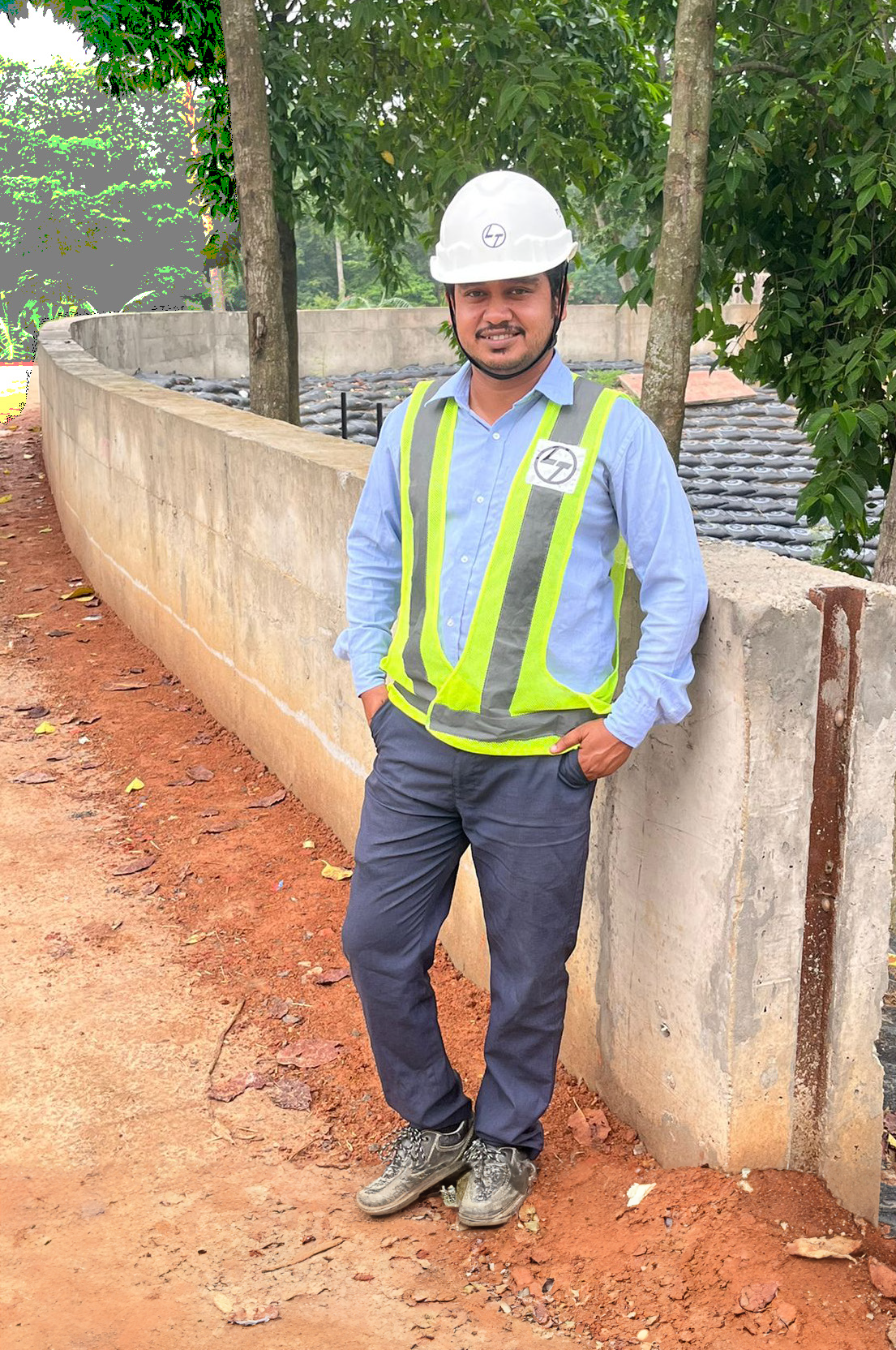
While only about half the site was available when they commenced construction, the team found that it lacked proper motorable access and space for logistical movement. “We set up a yard 8 km from the site where heavy machinery could easily unload the sheet piles and other construction material,” he informs. After being cut, painted and then inspected by the client, the material was dispatched on tractor trolleys to the site that could not accommodate the full-length steel. “Another of our smart solutions was to reduce the height of the embankment to 1 metre to provide access for construction equipment,” he shares.
“We installed MOVAX, a special attachment, to the EX-200 equipment to drive the sheet pile and bullahis faster,” he flags off a digital intervention. The team also set up a batching plant near the yard as the concrete had to be inter-carted by a small SLM/Ajax of 2 cum. capacity.
Krishnendu smiles that true to their task to construct flood protection infrastructure, the team came to the rescue of the nearby villages by saving their agricultural land when the area faced heavy floods thrice in 2021.
He is thankful to his immediate senior, Surendra Bharti, and Project Manager, V B Thakre, for their professional and personal support, and to his hardworking team members. “There is no ego among us about work and, thanks to our collective efforts, we have received Appreciation Certificates for both quality and safety.”
Having started his career in 2010 as a Civil Supervisor, he joined L&T GeoStructure in 2018 and fondly recalls an important contribution that he had made during his stint at the CMRL site in Chennai. “It was my idea to fabricate and erect a frame mechanism for the pile pull-out load test, which was India’s biggest, at 1,450 MT,” he says, flashing a smile.
A native of Bagnan, West Bengal, and still single, Krishnendu enjoys handcraft and playing football and is immensely proud to be an L&T‑ite.
